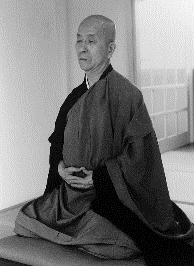Hi Kenny,
It is much more than a rewrite. He was obviously working from it, but then made extensive changes. Dogen borrowed the sections on the mechanics of sitting, but completely rewrote the sections on the spirit and attitude of Zazen, the purpose and spirit. The changes are fascinating. He did write quite a bit in Fukanzazengi about what to do with the mind.
A couple of examples ...
Zongze has an emphasis on Samadhi and the Bodhisattva Vow ...
Dogen changed this to his questions on Original Enlightenment and the meaning of Practice ...
On the mind, Zongze wrote this ...
Dogen ...
Gassho, J
SatTodayLAH
It is much more than a rewrite. He was obviously working from it, but then made extensive changes. Dogen borrowed the sections on the mechanics of sitting, but completely rewrote the sections on the spirit and attitude of Zazen, the purpose and spirit. The changes are fascinating. He did write quite a bit in Fukanzazengi about what to do with the mind.
A couple of examples ...
Zongze has an emphasis on Samadhi and the Bodhisattva Vow ...
The Bodhisativa who studies prajna should first arouse the thought of great compassion, make the extensive vows,
and then carefully cultivate samadhi. Vowing to save sentient beings, he should not seek liberation for himself
alone.
and then carefully cultivate samadhi. Vowing to save sentient beings, he should not seek liberation for himself
alone.
Fundamentally speaking, the basis of the way is perfectly pervasive; how could it be contingent on practice and
verification? The vehicle of the ancestors is naturally unrestricted; why should we expend sustained effort? Surely
the whole being is far beyond defilement; who could believe in a method to polish it? Never is it apart from this
very place; what is the use of a pilgrimage to practice it? And yet, if a hair's breadth of distinction exists, the gap is
like that between heaven and earth; once the slightest like or dislike arises, all is confused and the mind is lost.
verification? The vehicle of the ancestors is naturally unrestricted; why should we expend sustained effort? Surely
the whole being is far beyond defilement; who could believe in a method to polish it? Never is it apart from this
very place; what is the use of a pilgrimage to practice it? And yet, if a hair's breadth of distinction exists, the gap is
like that between heaven and earth; once the slightest like or dislike arises, all is confused and the mind is lost.
Once you have settled your posture and regulated your breathing, you should relax your abdomen. Do not think of
any good or evil whatsoever. Whenever a thought occurs, be aware of it; as soon as you aware of it, it will vanish.
If you remain for a long period forgetful of objects, you will naturally become unified.
any good or evil whatsoever. Whenever a thought occurs, be aware of it; as soon as you aware of it, it will vanish.
If you remain for a long period forgetful of objects, you will naturally become unified.
Once you have regulated your posture, take a breath and exhale fully. Swing to the left and right. Sitting fixedly,
think of not thinking. How do you think of not thinking? Nonthinking. This is the essential art of zazen. Zazen is not
the practice of dhyana: it is just the dharma gate of ease and joy. It is the practice and verification of ultimate
bodhi. The koan realized, baskets and cages cannot get to it.
think of not thinking. How do you think of not thinking? Nonthinking. This is the essential art of zazen. Zazen is not
the practice of dhyana: it is just the dharma gate of ease and joy. It is the practice and verification of ultimate
bodhi. The koan realized, baskets and cages cannot get to it.
SatTodayLAH


 Shane
Shane







Comment